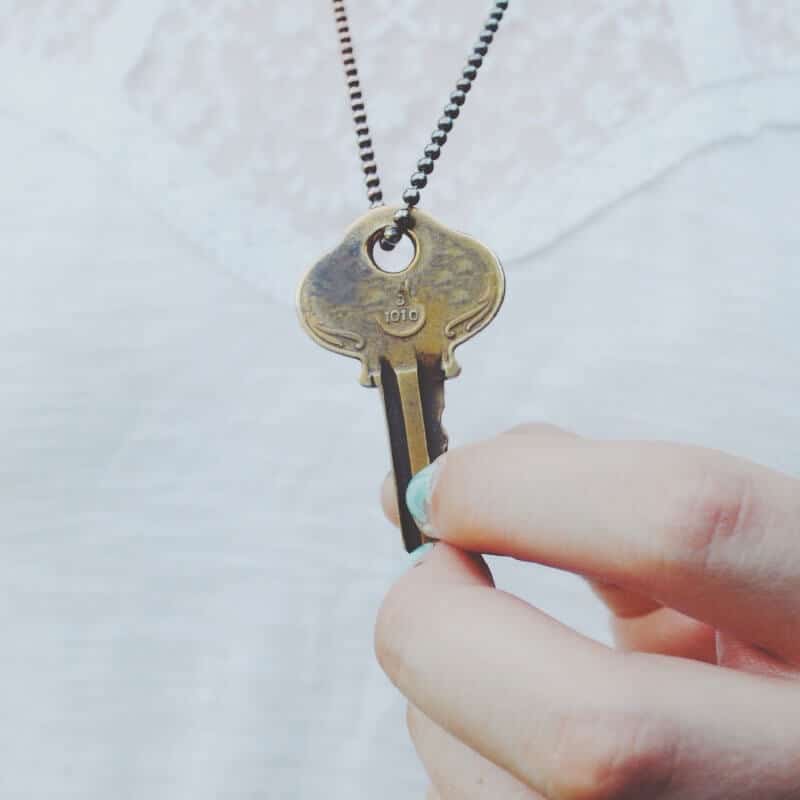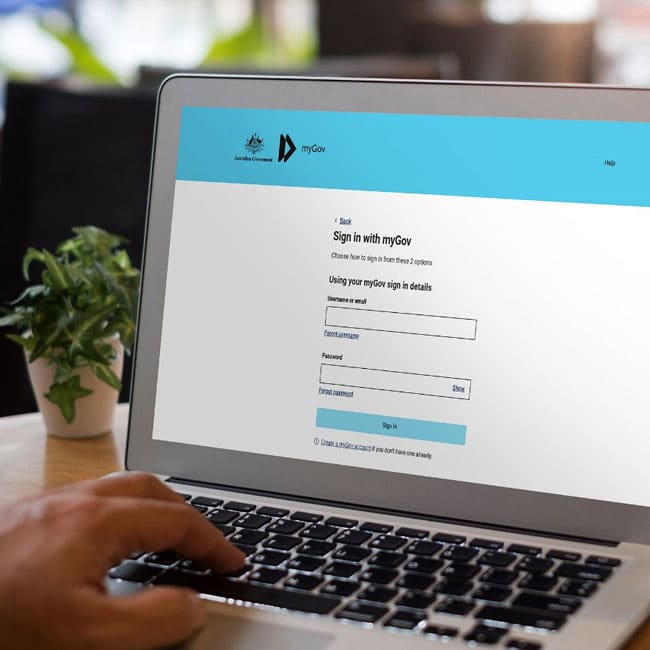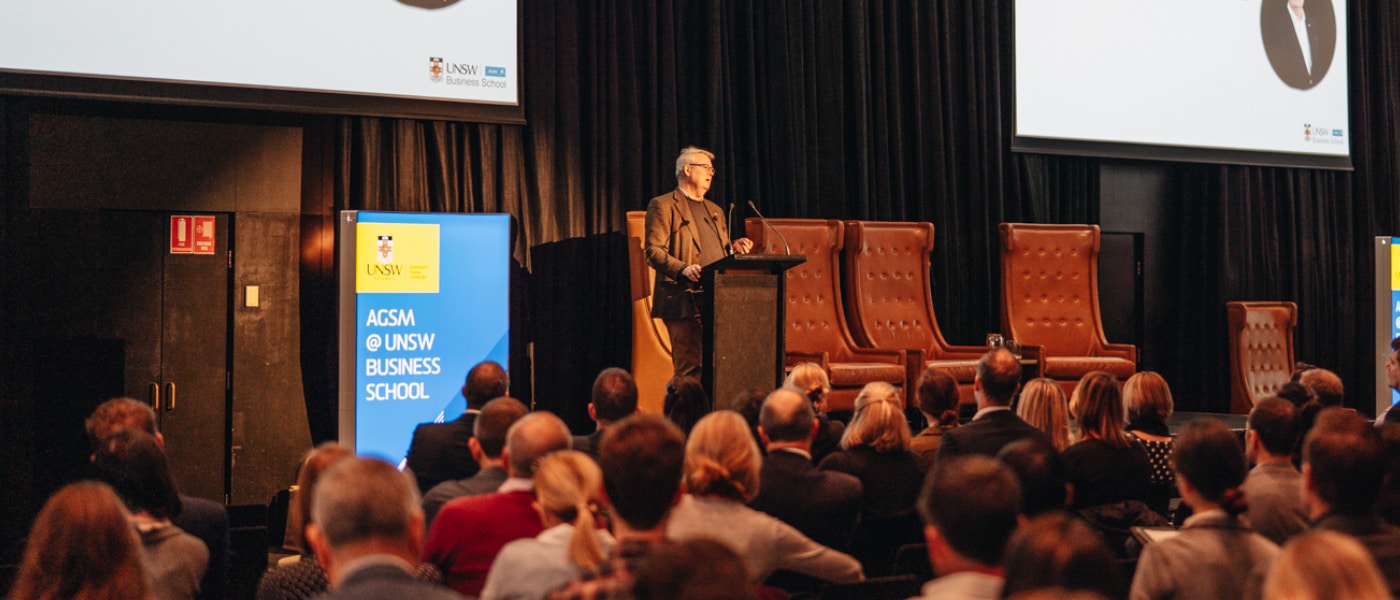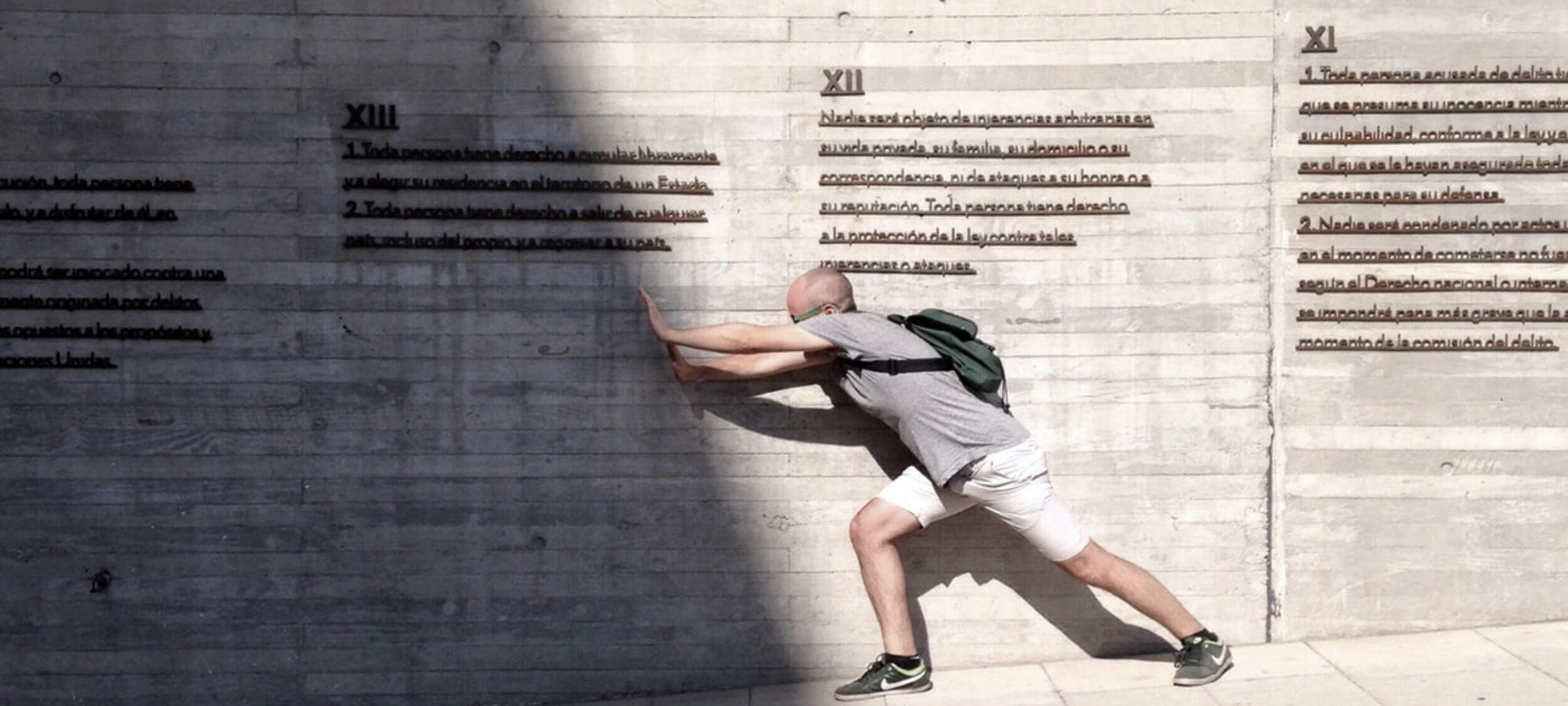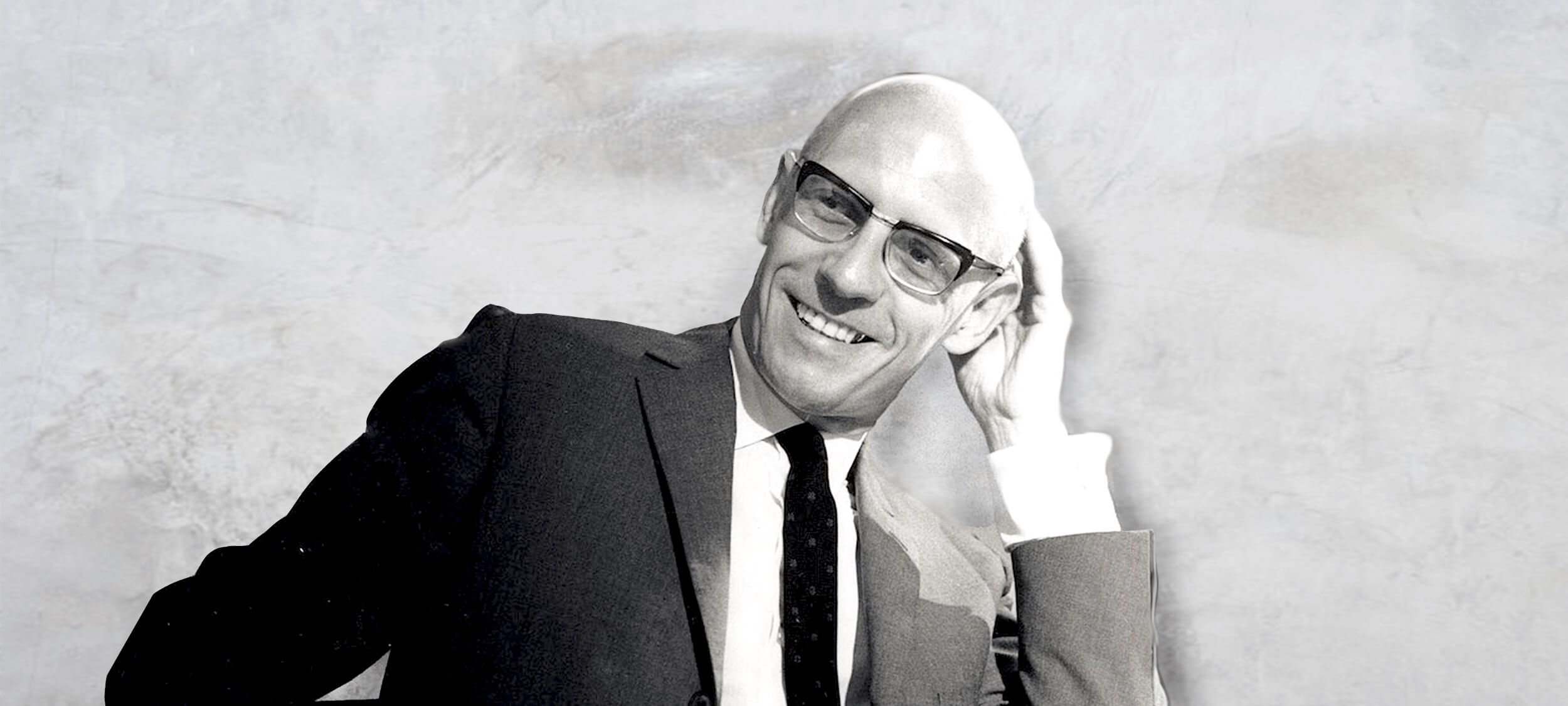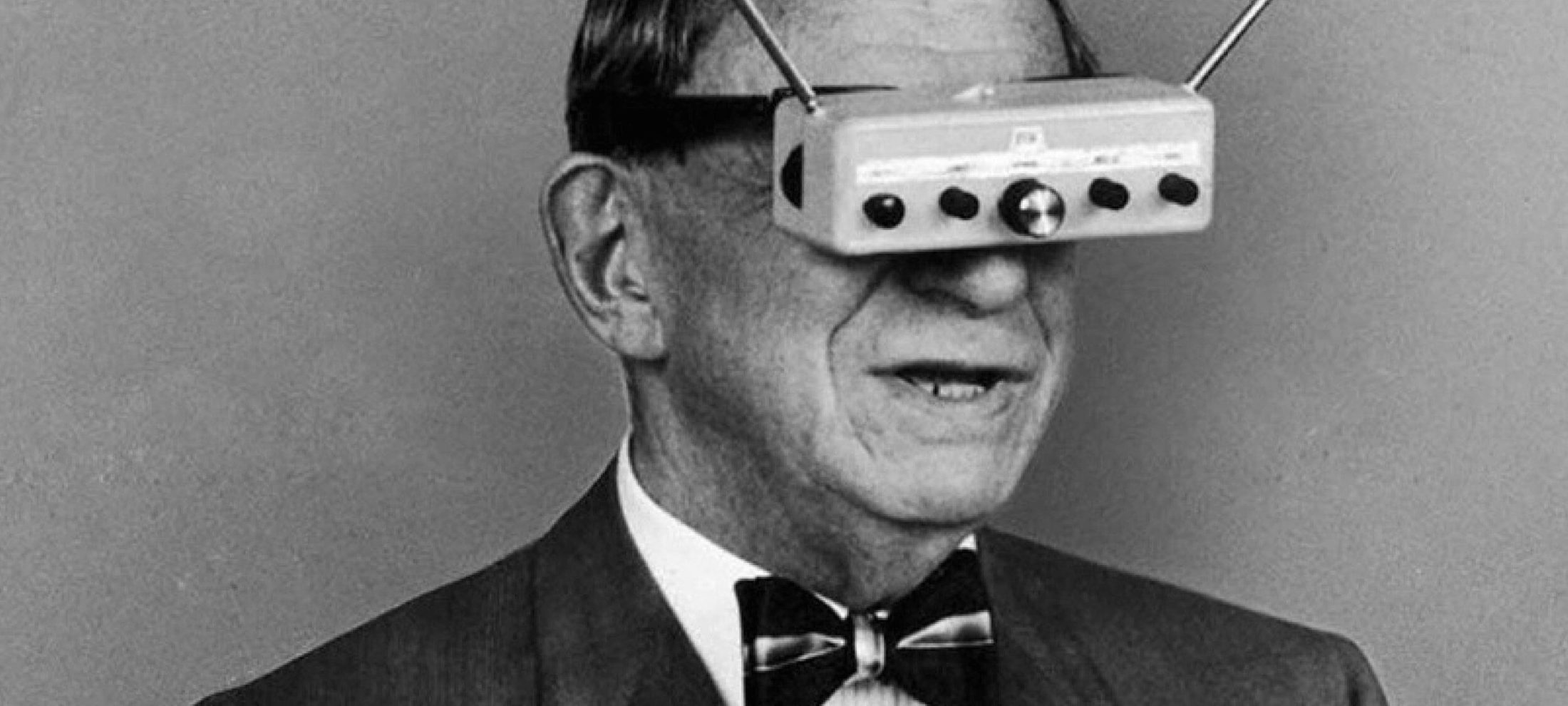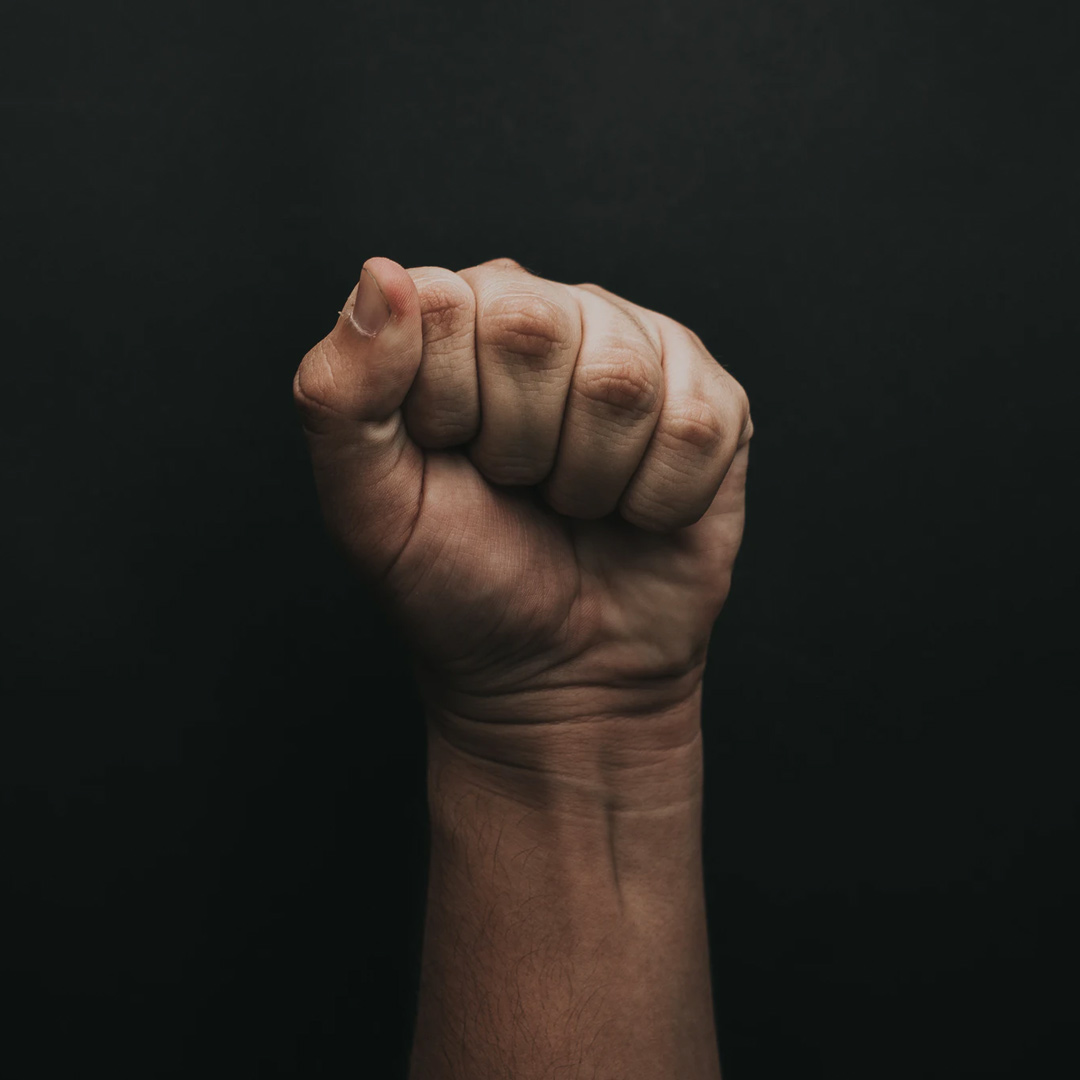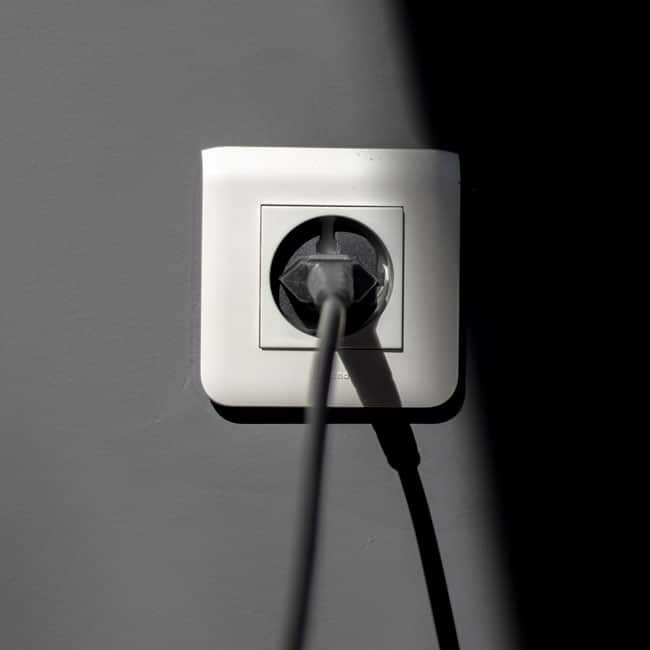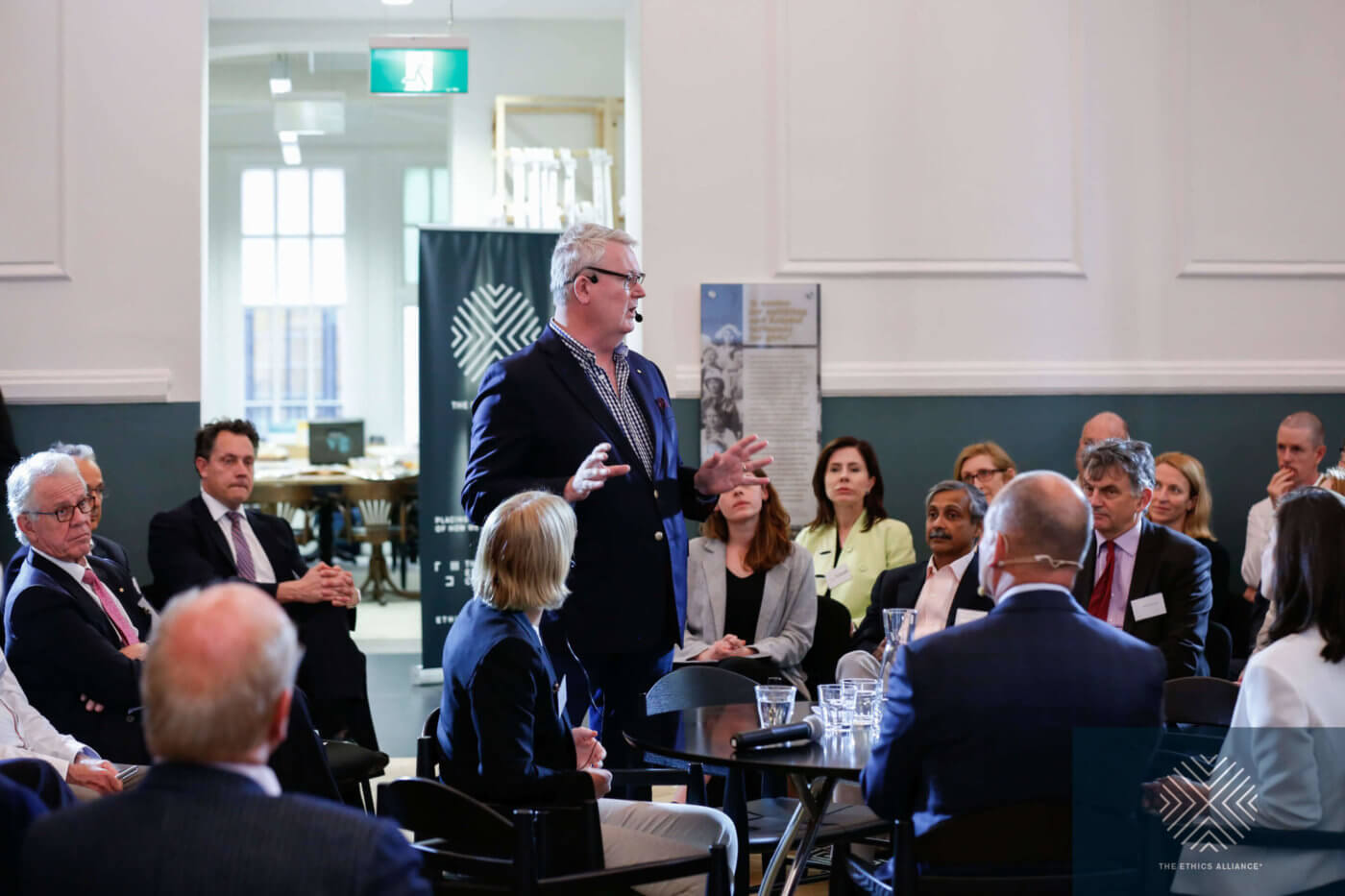John Elkington on business sustainability and ethics

John Elkington on business sustainability and ethics
Opinion + AnalysisBusiness + Leadership
BY The Ethics Centre 11 OCT 2021
John Elkington is a world authority on corporate responsibility and sustainable development. Elkington sat down with The Ethics Centre’s Simon Longstaff to chat about the future of business sustainability.
“I first got involved in the business world in the mid-70s, at a time when business really didn’t want to talk to people who were self-described environmentalists or anything like that. And yet I was an environmentalist.”
John Elkington believes his admiration for the natural world began when he was six or seven. He found himself alone in the middle of a field in Northern Ireland at night, in complete darkness, and to his surprise he looked down and his feet were surrounded by tens of thousands of baby eels. “I put my hands down in the dark and had these things wriggling through my fingers. And I had one of these sort of absolute panic attacks followed by something really quite profound, which has never left me somehow,” he says. “It was a sense of connection.”
Audio: Listen to John Elkington talk about his childhood experiences.
John Elkington has dedicated his professional career to corporate responsibility and sustainable development. In the early 80s, he set up a company called Environmental Data Services, and within 18 months was helping major companies write their first environmental policy statements. His idea was: you can make or save money by doing the right thing on resources and environmental protection. “Even if you’re a small or medium size enterprise you can have a catalytic effect,” he says. “But by the time you get to the size of an Exxon Mobil or a BP or a Shell then you really are having major economic impacts.”
John Elkington on the corporate responsibility movement.
“I think for the last 40 years, business has been encouraged to be more responsible. More transparent and more accountable. The responsibility agenda continues to evolve and expand. And now we’ve got wealth divide on the agenda. We’ve got public access to health care issues. We’ve got tax evasion – more and more issues are coming in which companies are going to have to deal with.
“But the problem is that the whole corporate responsibility movement, of which I’ve been part for so long, has failed in the sense that the systems that we depend on are all wobbling. Our economies are coming apart at the seams – our governments, the political systems, are doing the same. Our societies are under challenge and the biosphere is wobbling in a way that we haven’t seen for a very long time. So corporate social responsibility, as much as I love it, isn’t working.
“Our generational task now is economic, social, environmental, political and cultural regeneration. And the problem is that our current political classes weren’t trained for it. They talk about recovery, but they mean how can we get back on the previous set of rails? And I think the debate now has to be very different.”
Audio: John Elkington talks about the path ahead for corporate responsibility.
Is John Elkington optimistic about the future?
“I think people are increasingly aware that the old order can’t hold, things are coming apart and that’s not going to stop just because we have a new American president. We put on a conference in London in 2020, called the Tomorrow’s Capitalism Forum, and the tagline was “step up or get out of the way”. Now, if you’re in coal that’s not an idea you’d like to embrace if that’s your business. But I think we have misread the urgency of the sort of cataclysmic system changes that are coming towards us. It’s like a tsunami. And it’s very difficult to ride a tsunami. I think we’re now faced with the consequences of what we and previous generations have been doing since the industrial revolution, at least. And we have a very, very short period of time in which to get our act together.”
“I think at the moment, business leaders and some finance leaders are proving more interesting than many political leaders. But this is a political challenge and the politicians have to wake up and get involved.”
Audio: hear John Elkington talk more about tackling climate change.
What keeps John Elkington awake at night?
“We need system change and cultural shifts, which the older generations are going to find profoundly dislocating. One of the things that worries me more than almost anything else is the intergenerational dynamics in all of this. In so many parts of the world you have very rapidly aging populations, and an aging population takes people increasingly to conservatism because they’re only investing for a shorter period of time. So I think there’s a real potential for anger to build up in younger populations. I’m surprised we haven’t seen more of it.”
“I’m 71 but oddly, I feel the next 15 years are going to be the most exciting of my life and the most challenging and the most dangerous politically.”
“We’re in a time of immense turbulence and people will suffer. There will be conflicts, tensions and stresses, which at times will be off the scale. But at the same time I think this is the most exciting period in our collective history, probably for hundreds of years. I’m very excited about the potential because I think it is when old systems come apart that the potential to drive systemic change goes off the scale. So the challenge for leadership I think is immense. And I think in many ways universities and business schools are not yet properly preparing people for that new world.”
John’s advice for future business leaders:
- Get out of your comfort zones and be exposed to different realities.
- Challenge your sense of who you are and what you should be doing.
- Question whether the systems you work in are still fit for purpose.
Audio: Listen to the podcast of John Elkington’s full discussion.
John Elkington is a world authority on corporate responsibility and sustainable development. He is currently Founding Partner and Executive Chairman of Volans, a future-focused business working at the intersection of the sustainability, entrepreneurship and innovation movements.
This episode was made possible with the support of the Australian Graduate School of Management, in the School of Business, at the University of New South Wales. Find out more about other conversations in the Leading with Purpose podcast.
Get more articles and podcasts like this by signing up to our Professional Ethics Quarterly newsletter here.
Ethics in your inbox.
Get the latest inspiration, intelligence, events & more.
By signing up you agree to our privacy policy
You might be interested in…
Opinion + Analysis
Business + Leadership
It’s time to consider who loses when money comes cheap
Opinion + Analysis
Business + Leadership, Health + Wellbeing
Why ethical leadership needs to be practiced before a crisis
Explainer
Business + Leadership, Climate + Environment
Ethics Explainer: Ownership
Opinion + Analysis
Business + Leadership
Why do good people do bad things?
BY The Ethics Centre
The Ethics Centre is a not-for-profit organisation developing innovative programs, services and experiences, designed to bring ethics to the centre of professional and personal life.
Holly Kramer on diversity in hiring

Holly Kramer on diversity in hiring
Opinion + AnalysisBusiness + Leadership
BY The Ethics Centre 11 OCT 2021
Holly Kramer, Non-Executive Director on the Boards of Woolworths and Fonterra Group, and Pro Chancellor at Western Sydney University, sat down with the Ethics Centre’s Simon Longstaff to chat about the future of business sustainability.
Holly Kramer believes that responsible management has grown in significance exponentially over the last five to ten years. She suggests the old Milton Friedman view of shareholder primacy is a thing of the past, and shareholders are now holding businesses to account and demanding they do the right thing for society.
“There’s a spectrum of different approaches to business stewardship,” she says. “There are those people who don’t understand the way the world has shifted in its attitudes toward corporate responsibility at all. There are those who do understand and “do the right thing” because they know that’s what’s expected of them, and then there are those who do the right thing because it’s simply the right thing to do.”
In the past, business decisions were generally made through the lens of profitability, and the time frame was – at most – a three year view; whereas today, management and boards must take into account the impact of their decisions on multiple stakeholders over longer time horizons, which can sometimes make those decisions seem more challenging.
“Companies are trying to change their metrics of performance. In many companies I’m involved with, you’re measured on financial and non-financial measures; and there is consideration of not just what you’ve achieved but how you’ve gone about it. They’re sometimes called “softer” skills or metrics, but I don’t agree with that characterisation. Acting sustainably requires a broader skill set and tough decisions. A new generation of business leaders are coming through, and they believe it’s important for businesses to be sustainable on every dimension – including diverse and inclusive workplaces, climate friendly practices, meaningful community engagement and leading with purpose.”
“At the end of the day, it’s critical that you hire the right people, people who understand that the decisions they make have a broader impact than just the bottom line. That’s what’s going to make the biggest difference for your business in the long run.”
Audio: Listen to Holly Kramer chat about reconciling doing the right thing with remaining profitable.
Holly Kramer on her career challenges.
“When I was in the telecommunications industry, there was a lot of money to be made from complexity. There were multitudes of calling plans; customers usually struggled to figure out what was the right solution for them. Customers told us that they wanted simplicity. Yet every time we looked at how to make them more simple, we couldn’t make the business case stack up. And so there were often internal struggles within the organisation. We were told: ‘look, if you do this, it will be an NPV negative business case, so we just can’t do it’.
“And while we battled with one another internally, ultimately what happened was that the competitors got there first, gave customers what they wanted and we lost market share as a result. I’ve always believed that when, on first glance, the numbers may not stack up, ultimately either competitors or customers will have the final say.”
Holly Kramer on responding to consumers.
Holly Kramer got her start in marketing, and she leveraged that skill when she started running an affordable fashion brand, so she was well aware that for a business to be successful it must reflect changing consumer needs. “Our starting point was to try and understand our customers as well as we could. Lots of research, lots of personal interaction. We learned early on, for example, that the industry’s idealised version of clothing models – young, skinny, and not diverse – didn’t resonate at all with our customers. They wanted to see the clothes look good on people that looked like them. And to feel good about themselves without the industry defining beauty for them.”
The problem with fashion supply chains.
Simon: “The fashion industry is now having to deal with the question of supply chains. There’s the modern slavery legislation, there’s a consciousness about environmental, social, a range of different issues, but I’m particularly thinking at the moment in the fashion industry where people were selling things like a $1 t-shirt – I really don’t know how anyone can think it’s possible to produce something for so low a price without it having adverse effects for the labour standards in the countries where they’re produced. And I think you encountered some of this during the time you were in the industry?”
Holly: “I was in the fashion industry … when the Rana Plaza tragedy happened in Bangladesh, which focused a lot of the world’s attention on human rights and ethics in the supply chain. However, I was working for a business in Australia that was owned by a parent company in another country. They were from a disadvantaged part of the world that had different standards for what was acceptable practice. And I remember getting challenged about our sourcing decisions because they (the parent company) simply had different standards and priorities than we did. But we had to do what we thought was right and also be consistent with community standards in Australia, where it was important to ensure fair employment practices were maintained in the companies who supplied us.
“The other issue was that a lot of the companies, to mitigate their reputational risk, just pulled their business out of Bangladesh. The problem with that is that you put jobs at risk in countries where the employees are most vulnerable. We had to ensure that our business was commercially viable, but also that we were doing the right thing by the countries we were sourcing from. It’s important to remember that there are no simple solutions. Companies need to consider the outcomes from a number of different angles.”
Audio: Listen to Holly chat about grappling with the ethics of fashion supply chains.
On accounting for diversity.
Over her decades working in the business sector, Kramer has seen boardrooms grapple with the idea of diversity and representation. “Gender is just one proxy for diversity,” she says. “It’s a starting point and it’s easy to measure.”
Kramer believes true diversity lies in having an array of people contributing ideas and solutions and having an environment where different ideas are welcomed. “It’s definitely important, but I don’t necessarily see gender as the most important starting point for diversity. I find it is usually cognitive diversity. Introverts and extroverts. People who like data and people who use intuition. Risk takers and those who are more risk averse. She says she’s always looking for new people who think differently to her because it makes good business sense. Gender is important, and thankfully business has made a lot of progress in that space, but Kramer feels there needs to be ethnic diversity, socioeconomic diversity, as well as generational diversity, which is just as important to achieve.
Holly’s advice for emerging leaders:
- Doing the right thing is good business
- Approach challenges with a long-term lens
- Put yourself in the position of your customers
AUDIO: Listen to the full podcast with Holly Kramer here>>
Holly Kramer is a Non-Executive Director on the Boards of Woolworths and Fonterra Group, and she is Pro Chancellor of Western Sydney University. Formerly, she was Deputy Chair of Australia Post and Chief Executive Officer of Best & Less. She has more than 25 years’ experience in general management, marketing and sales including roles at the Telstra, Pacific Brands and Ford Motor Company.
This episode was made possible with the support of the Australian Graduate School of Management, in the School of Business, at the University of New South Wales. Find out more about other conversations in the Leading with Purpose podcast.
Get more articles and podcasts like this by signing up to our Professional Ethics Quarterly newsletter here.
Ethics in your inbox.
Get the latest inspiration, intelligence, events & more.
By signing up you agree to our privacy policy
You might be interested in…
Opinion + Analysis
Business + Leadership
The role of ethics in commercial and professional relationships
Opinion + Analysis
Business + Leadership
How avoiding shadow values can help change your organisational culture
Opinion + Analysis
Business + Leadership, Science + Technology
People first: How to make our digital services work for us rather than against us
Explainer
Business + Leadership, Politics + Human Rights, Relationships
Ethics Explainer: Power
BY The Ethics Centre
The Ethics Centre is a not-for-profit organisation developing innovative programs, services and experiences, designed to bring ethics to the centre of professional and personal life.
Does Australian politics need more than just female quotas?

Does Australian politics need more than just female quotas?
Opinion + AnalysisBusiness + Leadership
BY Joshua Pearl 8 OCT 2021
The Labor Party’s recent decision to parachute Kristina Kenneally into the ethnically diverse electorate of Fowler came at the expense of Tu Le, a female Australian lawyer of Vietnamese background.
The decision revealed two things about politics in Australia. First, that female quotas work. Second, that if you are an Australian of Asian heritage, it’s difficult to join the political class. This is not news. The 2018 report by the Australian Human Rights Commission found that while nearly 21% of Australians are from a non-European background (excluding First Nations people who comprise an additional 3%), they make up just four per cent of Australia’s federal politicians.
Scrolling though the list of Australian leaders reveals this lack of representation. Scott, Dom, Dan, Mark, Steve, Pete, Andrew and Mike run the country, alongside one woman, Annastacia. Not one is of non-European background.
It is hard to understate the importance of a representative political class. A political class that acts in its own interests, or in the interests of a select few, is quite simply, not a democracy. A monarch rules to ensure power stays in the family line. An autocrat rules in his self-interest. In a civilian dictatorship, political decision-making rewards some and punishes others, as shown by the Russian and Chinese experience (think Chechens and Uyghurs respectively).
But a democracy is different. And democracy, at its core, is political decision-making that reflects the preferences – and better still, the interests – of the electorate. It is what drives democracy’s ability to achieve broad based economic growth. And it is what underpins the Nobel Prize winner Amartya Sen’s findings that “no substantial famine has ever occurred in any independent country with a democratic form of government and a relatively free press”.
When a democracy’s political class fail to reflect their society, they almost certainly fail to make decisions that best serve the electorate’s interests.
Consider Anthony Albanese. Albanese knows his own interests. He will have a reasonable understanding of other fifty-year-old blokes from Marrickville. But the further he moves out, the less understanding he has. I suspect he does not properly understand the concerns of a typical thirty-year-old woman, and I am nearly certain he has no real sense of the needs and wants of politically under-represented groups such as the Vietnamese community. When Albanese makes decisions that affect politically under-represented communities, it is hard to see how he could be appropriately informed.
An identical point can be made with respect to the Prime Minister, Scott Morrison. Simply replace Marrickville with Cronulla. It is this very reason why country folk want their local members to be country folk, and not people who, living in the city, neither understand the nuances of rural issues, nor have the same “skin in the game”, so to speak.
There are three principal ways to achieve a more representative political class: grassroots movements, targets and quotas. The logic for grassroots movements is that when party members better reflect Australian society, this translates into a similarly representative political class. But the proof is in the pudding. The Liberal and Labor Party have been compelled to introduce female quotas and targets because they have found grassroots movements to be insufficient. Targets are what is hoped for, but are not binding. But based on the Liberal Party’s experience with its target of 50% female representation across Australian parliaments by 2025, targets seem similarly impotent. Women account for just 28% of Liberal parliamentarians.
The most effective method to ensure the political class reflects society is quotas, something borne out by the international experience in Canada, New Zealand, Mexico and Sweden, and the domestic experience of the Australian Labor Party. When Labor first introduced female quotas in 1994, 13% of federal Labor parliamentarians were women. Today it is 48%.
There are a number of arguments against quotas. One is that quotas undermine politicians who are members of the quota group. But is Penny Wong’s career tainted by the fact that Labor has a female quota? And would we really think any less of Julie Bishop or Gladys Berejiklian had the Liberal Party had female quotas?
Another is that quotas are not “very democratic”. But this misunderstands democracy. Democracy is about collective decision-making that is responsive to the interests of citizens. It is not an unfettered Labor and Coalition duopoly, led by a handful of party executives and the estimated 1% of Australians who are party members (and if you think it is not a duopoly, try and name the last federal cabinet minister who wasn’t a member of one of these parties). Both groups have obligations that stretch beyond party members, and extend to all Australians. But do they recognise these duties? And how easily are they set aside when at odds with the interests of the party or the individual politician?
The argument against quotas that appears to have some merit is that quotas risk overruling other desirable characteristics such as intellectual capacity, political charisma or work ethic. This is not to say that under-represented groups don’t have equally great candidates. Rather, it acknowledges that in snap elections, or when relevant political branches or parties are disorganised or dysfunctional, the need to meet quotas may trump other factors.
And yet this overstates the purity of our preselection system. Deals get done. Mistakes happen. There are poorly qualified politicians who have won out over better qualified people. Sometimes the individuals we elect are criminals and other times they simply aren’t up to the job. It is unlikely well-defined quotas undermine the quality of our political class. Indeed, the evidence is pretty clear that the current system has led to the election of people who would never get into parliament if merit was the determining factor.
The argument for quotas based on ethnic or cultural background, sexual orientation or disability status, is not a popular one. Yet if female quotas are justified, it is difficult to see how quotas for other under-represented groups are not equally justified. There is, naturally, a limit to the number of groups that can be included. Groups would need to have a certain critical mass, be qualitatively different to other groups and be comprised of members of relevantly similar backgrounds.
But if we are serious about the need for the political class to reflect society, we should be serious about quotas for more than just women.
A qualification to this general argument is that all who are elected in a representative democracy are bound to bring their best judgement to bear when acting in the interests of the electorate as a whole. That is, the fact a person comes from a particular group does not mean they are its ‘delegate’. The point about quotas is not that one’s identity enables or precludes the possibility of providing ‘representation’ in this broader sense. Rather, quotas ensure that a diverse electorate can have confidence that when judgement is exercised then it will be informed by a range of considerations that include the experiences of all.
An Australian parliament without women or Indigenous people, without rural representatives, or without people of Asian heritage, cannot meet the range of interests of the electorate.. A broader quota policy would help Australia realise a more legitimate version of democracy. It may also mean that added to the names of Bob, Paul, John, Tony, and Julia, is a name like Tu or Dai.
Ethics in your inbox.
Get the latest inspiration, intelligence, events & more.
By signing up you agree to our privacy policy
You might be interested in…
Opinion + Analysis
Science + Technology, Business + Leadership
The ethics of AI’s untaxed future
Opinion + Analysis
Business + Leadership, Relationships
The role of the ethical leader in an accelerating world
Opinion + Analysis
Business + Leadership, Science + Technology
Is it ok to use data for good?
Opinion + Analysis
Business + Leadership, Health + Wellbeing, Relationships
Office flings and firings
BY Joshua Pearl
Joshua Pearl is the head of Energy Transition at Iberdrola Australia. Josh has previously worked in government and political and corporate advisory. Josh studied economics and finance at the University of New South Wales and philosophy and economics at the London School of Economics.
Ethics Explainer: Negativity bias

Sometimes life can seem overwhelming. Often, it’s because we can’t help focusing on the bad stuff and forgetting about the good.
Don’t feel too bad. We’re hard-wired to be more impacted by negative events, feelings and thoughts than those things that are positive. Surprisingly, when experiencing two experiences that have equal intensity, we’ll get stuck on the negative rather than the positive.
This psychological phenomenon is called negativity bias, which is a type of unconscious bias. Unconscious biases are attitude and judgements that aren’t obvious or known to us but still affect our thinking and actions. They are often in play despite the fact we may consciously hold a different view. They’re not called unconscious for nothing.
This is an especially tricky aspect of negativity bias since we tend not to notice ourselves latching onto the negative aspects of any given situation, which makes preventing a psychological spiral all the more difficult.
We’ve all experienced how easy it is to spiral due to the one hater who pops up in in our Insta or Twitter feed despite the many positive comments we could be basking in. This is the pernicious power of negativity bias – we are disproportionately affected by negative experiences rather than the positive.
Remember that time a co-worker or friend said something irritating to you near the beginning of the day and it remained in your mind the whole day, despite other positive things happening like being complimented by a stranger and getting lots of work done? Of course you remember it. Because our memories are also drawn like a magnet to those negative experiences even when far outweighed by the positive experiences that surrounded it. You might have finished that day still feeling down because you hadn’t been able to forget about the comment, despite the day on the whole having been pretty good.
Something that’s been prevalent for the past two years is negativity around various COVID-19 measures. It’s easy for us to focus on the frustration of forgetting to take our mask with us somewhere or the inconvenience of constantly checking-in. Often these small things can linger in our minds or affect our moods, while small positive things will go almost unnoticed.
Negativity bias can also affect things outside our mood. It can affect our perceptions of people and our decision making.
It also causes us to focus on or amplify the negative aspects of someone’s character, resulting in us expecting the worst of them or seeing them in a broadly negative light. Assuming someone’s intentions are negative is a common way that arguments and misunderstandings occur.
It can also heavily affect our decision-making process, an effect demonstrated by Nobel Prize winners Daniel Kahneman and Amos Tversky, who were groundbreakers in uncovering the role of unconscious bias. Over-emphasising negative aspects of situations can, for example, cause us to misperceive risk and act in ways we normally wouldn’t. Imagine walking down the street and losing $50. How does that feel? Now imagine walking down that same street and finding $50. How different does it feel to find, rather than lose $50? Kahneman used this experiment to show that we are loss averse – even though the amount is the same, most people will feel worse having lost something than having found something, even when it is of equal value.
It’s not all doom and gloom, though. Research suggests that this bias comes from our early need to be attentive to danger, and there are various ways we can remain attentive to possible threats while stemming the effect of negativity on our mental state.
Minimising negativity bias can be difficult, especially when we focus on compounding problems, but here are a few things to remind ourselves of that can help combat negativity spirals.
- Make the most of positive moments. It’s easy to fall into a habit of glossing over small victories but taking a few minutes to slow down and appreciate a sunny day, or a compliment from a friend, or a nice meal can help to take the negative winds out of our sails.
- Actively self-reflect. This can include things like recognising and acknowledging negative self-talk, trying to reframe the way you speak about things to others in a more positive light and double-checking that when you do interpret something as negative that it is proportionate to the threat or harm it poses. If it’s not, take some time to reassess.
- Develop new habits. In combination with making an effort to recognise negative thought patterns, we can develop habits that help to counteract them. Pay attention to what activities give you mental space or clarity, or tend to make you happy, and try to do them when you can’t quite shake the negativity off. It could be as simple as going for a walk, reading a book, or listening to feel-good music.
Ethics in your inbox.
Get the latest inspiration, intelligence, events & more.
By signing up you agree to our privacy policy
You might be interested in…
Big thinker
Relationships
Big Thinker: bell hooks
Opinion + Analysis
Health + Wellbeing, Relationships
Philosophy must (and can) thrive outside universities
Big thinker
Politics + Human Rights, Relationships
Big Thinker: Michel Foucault
Opinion + Analysis
Health + Wellbeing, Relationships, Science + Technology
When do we dumb down smart tech?
BY The Ethics Centre
The Ethics Centre is a not-for-profit organisation developing innovative programs, services and experiences, designed to bring ethics to the centre of professional and personal life.
Interrogating our vaccine fetish

Interrogating our vaccine fetish
Opinion + AnalysisHealth + Wellbeing
BY Bryan Mukandi The Ethics Centre 27 SEP 2021
A couple of months ago, a friend died as a result of COVID-19 infection.
In a more just world, more people would know about Dr Surprise Matekere, or Shami, as I knew her long ago, when we were fellow medical students and then junior doctors at the United Bulawayo Hospitals.
In a more just world, the poor, rural communities she served would not have been so poor, or so in need of her generosity, nor the generosity of others like her. In a more just world, standards of living in Matabeleland and across the so-called ‘developing world’ would be much higher; COVID vaccines and other health supplies would be more widely available; and a remarkable woman, an incredibly dedicated health care provider, and a lovely human being would probably still be alive today. Sadly, it seems as though the world of our making is governed more by the maxim Ngũgĩ wa Thiong’o laments in Petals of Blood – ‘you eat or you are eaten’ – than it is by any coherent conception of justice. Moreover, our primary imperative, our outworking of conatus or the will to persevere, is a striving to be on the winning side of the ruthless, governing calculus. We are driven, it seems to me, by the impulse to consume others. It’s on this, our cannibalism, that I would like to dwell.
We are driven, it seems to me, by the impulse to consume others.
In his argument for conditional requirements rather than compulsion to be vaccinated, Simon Longstaff makes helpful allusion to ‘our nation’s response to the threat posed by terrorism’. He correctly points to the present negative consequences of the post 9-11 deployment of incorrect language and concepts in the justification of terrible policy. Instructive as that is, I think Operation Sovereign Borders is even more illuminating. Consider all the death and suffering that we, in Australia, were collectively willing to countenance to ensure that the risk of being eaten remained beyond our shores, externalized.
How many times did we hear the invocation of the formula, “We don’t want to see people dying at sea on their way here,” with absolutely no care taken nor provisions in mind for them, dying over there? Granted, many of us opposed the policy, but Charles Mills’ explication of The Racial Contract should give even those of us who protest/ed pause. At the heart of the racial contract, he claims, is ‘an epistemology of ignorance’. Hence, signatories acquire both: a share in domination; as well as the power to fail to understand their part in that same domination. That ability to fail to see those one consumes, to imagine oneself morally upright with clean hands, demands the expenditure of a great deal of power, Nietzsche tells us. In practical terms, this means that we can critique and protest cruelty enacted on our behalf, all the while enjoying its benefits.
In practical terms, this means that we can critique and protest cruelty enacted on our behalf, all the while enjoying its benefits.
It’s interesting how the ‘Sovereign Borders’ logic has been deployed internally. The obvious parallels are between national and state boundaries. Today in Queensland, what will be in New South Wales will be – people will be locked down, vaccinated, or not; numbers will go up and down; elected officials will stay or go – so long as we are not locked down, and continue to receive all our goods and services. So much so, I’m not sure how meaningful the distinction really is between the person in Delhi and the person in Sydney. Having been convinced that our wellbeing is tied to the exclusion of the former, it was a small hop, skip and a jump to accepting the same argument regarding the latter. The pedantic reader will ask about the ethnicity and socio-economic qualities of these two individuals. Might the drive to keep consuming in peace trump longstanding prejudices? It might, and once this logic holds across state lines, why not across local government authorities, neighbourhoods, class or occupational lines?
Those in our society most given to eating and most practiced in not being eaten seem to be responding to the pandemic and all it portends in two main ways, dividing themselves into two broad groups.
Those in our society most given to eating and most practiced in not being eaten seem to be responding to the pandemic and all it portends in two main ways, dividing themselves into two broad groups. I would refer to the first group as petulant children, were they not so dangerous. Yet beneath the surface of anti-vaccine, anti-lockdown protest is the reality that there are among us those habituated to privilege – to being served, to tax breaks, cheap credit, relatively high wages, to the inheritance, accumulation and bequeathal of wealth, and to social and political institutions that seem to work to their benefit. So much so, these recipients of enough of a share of a machine – that extracts unsustainably and inequitably – have lost either the ability or the will to countenance risk, precarity, or even their own mortality.
The second group is as invested in the status quo, but instead of closing both eyes to the present state of things, gingerly advances with one eye open and an outstretched hand feeling out the future. “70% … 80% … single dose…double dose … when we get to 70% double dose vaccination…” These are their religious mantras, rather than, “Universal basic income … community development schemes … decentralisation … grassroots public engagement…” It’s fascinating to watch the government, which collectively belongs in this camp, wheel and deal to secure more vaccine doses. Names of pharmaceutical corporations have been made part of the national lexicon. Officialdom has decided that the COVID-19 plan is to keep calm and vaccinate. And while I think mass vaccination is eminently sensible and should be pursued rigorously, I wonder about how those charged with governing will address the small proportion of people who cannot get vaccinated due to medical contraindications; and the larger number who choose not to get vaccinated. It is an unjust society that is indifferent to the former, sacrificing them to the satisfaction of the appetites of the many, regardless of how small their number; and it is a cruel society that is willing to disregard the latter, no matter how petulant.
It is an unjust society that is indifferent to the former, sacrificing them to the satisfaction of the appetites of the many, regardless of how small their number; and it is a cruel society that is willing to disregard the latter, no matter how petulant.
Interestingly, I think these two groups are two parties, taking different paths towards the same goal: the satisfaction of the impulse to continue to eat rather than be eaten. One group demands the right to go on exactly as before, while the other wants to take some precautions, and then go on as before. For both parties, the vaccine is a fetish, understood in the sense laid out by J. Lorand Malory in The Fetish Revisited. He defines a fetish as “a material thing animated by the contrary models of society and the contrary personal expectations of the people who […] have rival relationships with that material thing”. A vaccine is a material object; it is a biologically active substance administered by needle and syringe. COVID-19 vaccines have been brought to life in ways that the measles, mumps and rubella (MMR) vaccine has not. This is because MMR vaccine does not raise existential questions regarding the possibilities of our ability to persist as before.
The COVID vaccination debate concentrates and reduces a complex, crucial conversation to the level of the inane.
The COVID vaccination debate concentrates and reduces a complex, crucial conversation to the level of the inane. It exempts us from consulting geographers, urban planners, architects, civil engineers, political economists, environmental scientists, sociologists and others on the urgent societal reconfiguration necessary. We can instead just reel off biostatistics, discover libertarianism, or engage in any number of activities that keep us focused on stop gaps rather than confronting the demands of redress. Fixation on vaccine and on anti-vaccine are different modes of the same evasion of thought.
In The Beast and the Sovereign, Jacques Derrida grapples with that beastliness which is a feature of the enactment of some conceptions of sovereignty. This maps onto, I suspect, the voracious, extractive monster – the demonic, open stomach – that Irene Watson describes in Raw Law. For the most part, this beastly monstrosity is who we are as a political community. Confronted with crisis, we demand the freedom to move about unvaccinated and spread illness where we go; or the freedom to compel or coerce others into taking the medical precautions that will hasten a return to our normal patterns of consumption, including the consumption of the labour of those we are compelling. Naked indifference on one hand, and callous disregard on the other.
In both cases, frighteningly sharp teeth are bare. In neither case is there the attempt to engage in politics, not of the political party variety, but that deliberative, difficult, good faith engagement around what makes for a good society, to which Aristotle gestures in the Nicomachean Ethics. Thus, we ensure that the condemned of the world remain prey, in New South Wales, in Delhi, in Matabeleland, regardless of which of our ruling factions comes out on top.
Ethics in your inbox.
Get the latest inspiration, intelligence, events & more.
By signing up you agree to our privacy policy
You might be interested in…
Opinion + Analysis
Health + Wellbeing, Politics + Human Rights
‘Eye in the Sky’ and drone warfare
Opinion + Analysis
Health + Wellbeing
The virtues of Christmas
Explainer
Health + Wellbeing, Society + Culture
Ethics Explainer: Logical Fallacies
Big thinker
Health + Wellbeing, Politics + Human Rights, Relationships
Big Thinker: Judith Butler
BY Bryan Mukandi
is an academic philosopher with a medical background. He is currently an ARC DECRA Research Fellow working on Seeing the Black Child (DE210101089).
BY The Ethics Centre
The Ethics Centre is a not-for-profit organisation developing innovative programs, services and experiences, designed to bring ethics to the centre of professional and personal life.
Paralympian pay vs. Olympian pay

Paralympian pay vs. Olympian pay
Opinion + AnalysisRelationships
BY Mehhma Malhi The Ethics Centre 27 SEP 2021
Recently, the Australian Prime Minister, Scott Morrison, announced that Paralympians will be paid the same bonuses as Olympians.
Specifically, medalists that win gold will receive a $20,000 bonus, and those that win a silver or bronze will get $15,000, and $10,000 respectively. Remarkably, prior to this announcement Paralympians received no payment whatsoever for representing their country and for their incredible efforts.
In his speech, Morrison noted that the Paralympic team won a phenomenal 60 medals and described this achievement as having “national significance.” It appears that the exceptional performance of our Paralympians has prompted this change to the funding model. But while this is a welcome development and clearly a step in the right direction, the reasons for this shift in thinking and change in policy warrant further consideration.
Firstly, it seems unfair and perhaps reductive to award the Paralympic team equal compensation only if they perform exceptionally as a collective. The team only garnered support for its campaign because it won a large number of medals that surpassed the collective achievements of our Olympians. One can’t help wondering had they not done so well would the Government have recognised their achievements and made this change?
On the other hand, this cannot be the only reason for the change in position as no such bonuses were considered in 2016 when Paralympians won even more medals – 81 in total. Therefore, perhaps the decision reflects more the thinking of the incumbent government instead of a more pervasive bias?
Either way, it is evident that such stark differences in pay partly occur because of deep-seated discrimination and that in reality individuals in minority groups have to go the extra mile to ‘prove’ their worth. Additionally, whilst our Olympians and Paralympians compete for their country, there is an explicit recognition that their individual efforts are partly compensated by the monetary award. The lack of payment undermines this.
Curiously, the Australian Government sets aside more than $50 million for high-performance grants that support both Olympians and Paralympians. But the fact that this budget is shared makes it even harder to comprehend why it has taken so long to recognise this disparity and attempt to correct it. However, leaving aside for a moment the reasons why this has occurred, let’s consider what makes this form of pay discrimination inequitable from an ethical perspective. Broadly, there are two main reasons.
First, the pay bonus is not an additional sum of money that athletes receive on top of their salary. Instead, it is usually their primary source of income. In other words, it is not a bonus at all, and athletes that don’t receive any such grants or awards must rely heavily on family support or sponsorships following sporting events to sustain themselves. Therefore, in addition to being an ‘award’ that serves the purpose of providing open acknowledgement of achievement, the bonus is in fact a monetary necessity. Therefore, for Australia to preferentially award athletes competing in the Olympics suggests that Paralympians are regarded less favourably and may in some way be considered as less worthy.
If the difference arose purely due to insufficient funds and a limited budget, then the most equitable approach would be to share the bonuses and split them equally between the two groups of athletes. But this has clearly not been the stance adopted to date.
Instead, the bonuses are a clear example of pay discrimination and the marked inequity denies the Paralympians what they rightly deserve. After all, the Paralympians train and work just as hard as Olympians. Furthermore, finding appropriate training facilities and resources for athletes with disabilities is far more challenging and costly than it is for those without any limitations. Places with the necessary specialised equipment and ease of access are scarce. And so, if anything, the budget for the Paralympic committee should be larger not smaller.
Further, Paralympic athletes are subject to pay discrimination as they are denied chances to receive sponsorships. There ought to be additional enhancements put in place to ensure the success of Paralympians. Traditionally, the Paralympics have been broadcast at odd hours and the advertising leading up to them is comparatively modest. This is in part driven by a lack of advertising and compounded by broadcasting schedules and limited Paralympian visibility. This means that sponsors are less likely to partner with Paralympians and the majority never receive lucrative sponsorships that would not only help the promotion of them as a brand but also contribute directly and meaningfully to their finances.
For all these reasons, it is necessary that the government, advertising agencies, and Paralympic and Olympic committees examine these issues and devise means of alleviating the financial stress placed upon athletes. Currently, athletes who want to compete and succeed in their sports have no choice but to accept rewards that are below par. The most important reason however, as to why these issues need to be addressed is that the differential treatment of Paralympians perhaps undermines the core tenet of amateur sport – that competition should fair and open to everyone equally.
Paralympians should not be penalised just because they have a strong desire to represent their country and compete. The creation of the Paralympics was based on the need for equal opportunity – surely this should be reflected in how we recognise those that show courage in participation and excel.
Image credit: Nick Miller, Paralympics, London 2012
Ethics in your inbox.
Get the latest inspiration, intelligence, events & more.
By signing up you agree to our privacy policy
You might be interested in…
Opinion + Analysis
Relationships
What I now know about the ethics of fucking up
Opinion + Analysis
Relationships
Our desire for reality: What OnlyFans says about sexual fantasy
Opinion + Analysis
Politics + Human Rights, Relationships, Society + Culture
Punching up: Who does it serve?
Explainer
Relationships
Ethics Explainer: Stoicism
BY Mehhma Malhi
Mehhma recently graduated from NYU having majored in Philosophy and minoring in Politics, Bioethics, and Art. She is now continuing her study at Columbia University and pursuing a Masters of Science in Bioethics. She is interested in refocusing the news to discuss why and how people form their personal opinions.
BY The Ethics Centre
The Ethics Centre is a not-for-profit organisation developing innovative programs, services and experiences, designed to bring ethics to the centre of professional and personal life.
Dame Julia Cleverdon on social responsibility

Dame Julia Cleverdon on social responsibility
Opinion + AnalysisBusiness + Leadership
BY The Ethics Centre 27 SEP 2021
Dame Julia Cleverdon DCVO CBE is a passionate and practical campaigner who has gained an international reputation for ‘connecting the unconnected’. Cleverdon sat down with The Ethics Centre’s Simon Longstaff to chat about the future of business sustainability and social responsibility.
Dame Julia Cleverdon remembers working in the business world in the UK in the early 1980s. Margaret Thatcher had been in power for a few years and had made clear her position to not intervene to save shipyards or coal mines. To Cleverdon, it felt like “the whole country was in flames”. In 1981, there was a series of flash riots across Britain largely triggered by high levels of youth unemployment, particularly in some of the poorest areas in Britain: Nottingham, Liverpool and parts of London.
At the time, Dame Julia was working for a leadership organisation called the Industrial Society, and was tasked with answering the question: what can businesses do to make a difference in communities? “We discovered that you were five times more likely to be unemployed if you were a black teenager than if you were a white,” she says.
“Although the riots weren’t race riots, they were young people in mass affected by what was going on in society. And the business world with whom I had been working quite closely at the Industrial Society were absolutely amazed and said ‘where’s this come from? The Molotov cocktails bouncing our boardroom tables is very bad for business. Where’s this come from? And what should we do about it?’”
Answering these questions became Dame Julia’s defining agenda for the 1980s.
“Being responsible was going to be a better long-term business than being irresponsible.”
Dame Julia Cleverdon has been in business for over four decades and says a lot has changed. “Some businesses that I’ve known for 40 years have not wavered from believing that there is only a commercial case,” she says, “while other businesses have had something in their DNA which means that they are more likely to care about the impact they have on society.”
She jokes that she read The Times death column every morning in order to see, “which maddening old culture has popped their clogs and was no longer running their business,” so she could try to persuade their successor to do business differently.
When asked whether business leaders have learnt from the mistakes of 1981, Dame Julia isn’t sure. “I think the UK is very interesting and specific. It has a great challenge because in a way so much of our success in the last 20 years has been built on the financial services and the enormous growth and power of London.
“London’s a global centre for private equity, for technology, but not enough people have come out of that overblown size to understand what was actually going on in the North. And if you look at some surprising decisions that Britain has taken in the last 10 years or so you say ‘what caused you to believe that coming away from Europe and the European relationships that you had since the Second World War, why did you think that was a good idea?’
“And you look at where the voting patterns were – the voting patterns were almost entirely the part of the North. Where Boris Johnson and this government are at the moment is that they won this enormous landslide last year, the 80 seats that had previously been owned by the Labor Party, because their approach on Brexit was what accorded with those in the poorer places of the North.
“They don’t know what life is like up here where fishing boats aren’t working, businesses have shut, our schools are very poor. Nobody seems to care about the quality of education.”
“In the lead up to 1980 business failed to notice this bubbling discontent, which then erupted into riots and cities burning. In the 2000s, they failed to notice the discontent in the North, which then gave rise to Brexit, which was clearly something that the business community did not welcome for the most part. And so on two occasions within the memory of people alive today, there’s been a failure.”
Julia Cleverdon on her ‘teach first’ initiative.
“One of the things that causes me to reflect is that between 2001 and now, 20 years later, I’ve seen the most enormous growth of graduates in Britain who want to come into the front line of public service as teachers, police officers, social workers. I was there at the start of something called Teach First, which was persuading the cleverest university graduates in Britain that they should come and teach in the poorest schools. The mating call of the posh ‘come and work in this unbelievably swanky very well-paid private sector, commercial job’, and I would say to them, ‘no, no, you can go on and do that later but first come and understand what the issues are of educational inequity in Britain’.”
What are the major challenges for the role of business in society?
“The issue is about whether businesses listen to what’s going on in society. When you listen to the people of Blackpool gathered together for two hours on a Zoom call during a global pandemic you think this is absolutely indescribable.
“Take the inequity of access to broadband, digital and tech kit. What COVID lockdown in the UK has shown us is that actually probably 70% of kids in the poorest communities have no access to digital kit at home. You may have one phone between the family and you’re not going to get everybody’s lessons downloaded on that one phone. The cost of being on Pay As You Go to get the lesson downloaded means that you can be spending £160 a week on data getting a family of six kids their lessons.”
AUDIO: Julia Cleverdon on her work within the Blackpool community.
Is Dame Julia Cleverdon optimistic?
“The thing that keeps me optimistic is, I’ve always worked with young people, but I never worked so extensively with young people as I have in the last seven years on a great campaign called the #iwill Campaign. And what has really fired me up is the passion, energy, belief and purpose of under 25-year-olds. I do believe that the business world par excellence has to innovate all the time to be ahead of the game. And the cleverest businesses understand that innovation is best done through diversity and diverse experiences. Therefore how you recruit, how you manage, has got to ensure that you’ve got a diversity of views.”
“The other thing is the passion of the young for the causes that I’ve cared about all my life. So I don’t worry anymore about climate change. You watch Greta [Thunberg], you watch the primary school strikes that we had in Britain and you see corporates realising they’re not gonna be able to survive and thrive if they don’t take that into account. So no, I remain an optimist even though I’m 70.”
AUDIO: What keeps Julia Cleverdon optimistic.
Julia’s advice for emerging business leaders:
- Spend time embedded in different communities to enhance your perspective
- Don’t just learn from books – get out into community
AUDIO: Listen to the full podcast with Dame Julia Cleverdon.
Listed by The Times as one of the 50 most influential women in Britain, Dame Julia Cleverdon DCVO CBE is a passionate and practical campaigner who has gained an international reputation for ‘connecting the unconnected’. She co-founded Step Up To Serve. The #iwill campaign, of which Julia is now a trustee, aims to get 60 percent of young people involved in practical action in the service of others by 2020.
This episode was made possible with the support of the Australian Graduate School of Management, in the School of Business, at the University of New South Wales. Find out more about other conversations in the Leading with Purpose podcast.
Get more articles and podcasts like this by signing up to our Professional Ethics Quarterly newsletter here.
Ethics in your inbox.
Get the latest inspiration, intelligence, events & more.
By signing up you agree to our privacy policy
You might be interested in…
Opinion + Analysis
Business + Leadership, Society + Culture
There’s something Australia can do to add $45b to the economy. It involves ethics.
Opinion + Analysis
Business + Leadership
Ethical redundancies continue to be missing from the Australian workforce
Opinion + Analysis
Business + Leadership, Health + Wellbeing
Is your workplace turning into a cult?
Opinion + Analysis
Business + Leadership
Georg Kell on climate and misinformation
BY The Ethics Centre
The Ethics Centre is a not-for-profit organisation developing innovative programs, services and experiences, designed to bring ethics to the centre of professional and personal life.
Georg Kell on climate and misinformation

Georg Kell on climate and misinformation
Opinion + AnalysisBusiness + Leadership
BY The Ethics Centre 27 SEP 2021
Founder and former Executive Director of the United Nations Global Compact, Georg Kell, sat down with The Ethics Centre’s Simon Longstaff to chat about the future of business sustainability for our ‘Leading with purpose’ series.
Georg Kell reflects on his first interactions with the United Nations Global Impact initiative fondly. “It was the late 90s when globalisation was very much on everyone’s lips and the world was embracing openness and the liberal order,” he says.
The idea behind the UN Global Compact originated in a speech by then Secretary-General Kofi Annan to the World Economic Forum in the late 1990s. At the time, the UN was already a well-known force in human rights, labour rights, environmental protection and ethics, good governance and anti-corruption, but these core pillars were seldom applied to large corporations.
The speech was called ‘The Global Compact’ and called on business leaders, in an era of globalisation, to take on more responsibility not just to look for profit but also to build environmental, social, and governance pillars. Popular reaction to the speech led to the official creation of the United Nations Global Compact in 2000, and Georg Kell was named the founding Executive Director.
In his capacity as the Executive Director, Georg Kell was involved in the creation of the Sustainable Development Goals, a blueprint to achieve a better and more sustainable future for all. Kell convened 60 international meetings with the corporate community to flesh out their desired goals and settled on a list of 12, which has now been increased to 17. The goals address the global challenges humanity faces including: climate change, poverty, inequality, environmental degradation, peace and justice.
The 17 sustainable development goals:
- End poverty in all its forms everywhere
- End hunger, achieve food security and improved nutrition
- Ensure healthy lives and promote wellbeing for all ages
- Ensure inclusive and equitable quality education for all
- Achieve gender equality and empower all women and girls
- Ensure availability and sustainable management of water and sanitation for all
- Ensure access to affordable, reliable, sustainable and modern energy for all
- Promote sustained, inclusive and sustainable economic growth
- Build resilient infrastructure
- Reduce inequality within and among countries
- Make cities and human settlements inclusive, safe and resilient
- Ensure sustainable consumption and production patterns
- Take urgent action to combat climate change and its impacts
- Conserve and sustainably use the oceans
- Protect, restore and promote sustainable use of terrestrial ecosystems
- Promote peaceful and inclusive societies for sustainable development
- Strengthen the means of implementation and revitalise the Global Partnership for Sustainable Development.
Kell admits it was a difficult task to convince business leaders representing different countries and backgrounds to sign onto the same goals, but says, regardless of culture and history, most people have similar interests. “No mother wants her daughter to go into forced prostitution. No father wants his son to be shot on a useless battlefield. Humanity has common aspirations. I think it is very important that we uphold those ideas that we stand by and do not give in.”
“For me the Global Compact principles are normative in nature. They are behavioural. They are a minimum floor, on which one should build, one should never go beneath it. It should never violate principles. You should not be corrupt. You should not employ child labour. You should not discriminate. We should not be complicit in human rights abuses.”
AUDIO: Listen to Georg Kell chat about the conception of the Sustainable Development Goals.
Georg Kell is optimistic about the climate.
“The world is moving very fast. And I do believe you’re standing now at the crossroad of a new tone. I take heed for example from the fact that both China and the new US administration and the European Union and Japan, and a number of other countries, now have a long term vision about climate change. Through the common threat posed we now have an opportunity to find a solution. I do believe we can and will discover a lot of commonality and common interest. So, there’s a new chance for a new beginning. I see many positive ripple effects including rediscovering the power of collaboration.“
Georg Kell is less optimistic about the dissemination of information.
“Nothing is assured in terms of rediscovering trust through truthful and honest information. That remains a big ongoing challenge and we all were a bit disappointed with the internet freedom. It didn’t necessarily advance, just the right courses, as we would perceive it, but it also enabled all sorts of conspiracies and niche thinking. But I do believe that events then rectify such mistakes, so to speak, when they come off the path. So it’s an opportunity for a renewal of basic belief systems. We have a chance to reload again. And unfortunately, we have to rediscover and relearn all the time. Unfortunately, that’s probably the destiny of our life. I do believe we have a constant duty to rediscover and relearn. And that will never go away.”
“Every citizen. Every organisation has a fundamental role to play in social development in society, and business with its significant influence and power has an appropriate important responsibility to play.”
Georg Kell hopes businesses take the opportunity to learn before crises occur.
Georg Kell says that in all his experience working in many different corporations he has actually come to appreciate a crisis situation, because he appreciates when a corporation is willing to rethink their position. However, he wishes that willingness also existed in the absence of a crisis. “Often when corporations learn from a crisis they emerge even stronger,” Kell says. “It’s easy to measure the costs of doing things wrong – reputational damage, stock prices go down – but it’s far more difficult to convince people of the benefits of getting a choice.”
According to Kell, businesses should take the time to reflect and question the purpose of what they’re doing and where they’re headed on a regular basis, without waiting for a crisis to occur.
AUDIO: Listen to Georg Kell talk about crisis management.
Georg’s advice for future business leaders:
- Pause, step back, reflect.
- Find a long-term view that you feel inwardly comfortable with.
- Make sure you have all the competencies and then go for it with full dedication.
AUDIO: Listen to the full podcast here.
Georg Kell is the founder and former Executive Director of the United Nations Global Compact. He is also the Chairman of Arabesque Partners, a technology company that uses AI and big data to assess sustainability performance relevant for investment analysis and decision making.
This episode was made possible with the support of the Australian Graduate School of Management, in the School of Business, at the University of New South Wales. Find out more about other conversations in the Leading with Purpose podcast.
Get more articles and podcasts like this by signing up to our Professional Ethics Quarterly newsletter here.
Ethics in your inbox.
Get the latest inspiration, intelligence, events & more.
By signing up you agree to our privacy policy
You might be interested in…
Opinion + Analysis
Business + Leadership, Relationships
Beyond the headlines of the Westpac breaches
Explainer
Business + Leadership, Politics + Human Rights
Ethics Explainer: Liberalism
Opinion + Analysis
Business + Leadership
How to improve your organisation’s ethical decision-making
Opinion + Analysis
Business + Leadership, Relationships
The transformative power of praise
BY The Ethics Centre
The Ethics Centre is a not-for-profit organisation developing innovative programs, services and experiences, designed to bring ethics to the centre of professional and personal life.
360° reviews days are numbered

360° reviews days are numbered
Opinion + AnalysisBusiness + Leadership
BY The Ethics Centre 21 SEP 2021
360 reviews, ‘culture pulses’ and staff surveys are the go-to tools for leadership evaluation and understanding company culture, but ‘shadow values and principles’ stop them from revealing the full picture. Here are three steps to identify and address shadow values to better understand you company’s culture.
Strong culture is integral to the smooth functioning of companies, but most organisations are only getting half the picture, says John Neil, Director of Innovation and member of the Consulting and Leadership team at The Ethics Centre.
360-degree reviews and staff engagement surveys provide a glimpse of company culture, but what they don’t reveal are the deeper, endemic aspects of culture that are ingrained and influential – the ‘shadow values and principles’.
Shadow values and principles are often invisible when culture is seen only through the lens of traditional staff surveys and reviews. However, all companies have their version of them and they need to be brought to light, acknowledged and addressed to truly gauge what’s in play in the culture. In doing so, Neil says “we can significantly improve outcomes both for individuals and for organisations.”
Below are three steps to identifying and addressing shadow values and principles.
1. Identify what shadow values are
“There are really two fundamental aspects to an organisation’s culture,” Neil says. “There are ‘above the line’ elements: the visible, the identifiable, the self-evident. And then there are ‘below the line’ elements, which are less visible, more implicit, and not so easy to identify. The latter are shadow values and principles.”
In other words, they are the unspoken rules, attitudes and behaviours of a company’s culture that aren’t immediately apparent but influence every aspect of the business.
While they can be positive, neutral or negative, “being aware of them is a really key part of better understanding what drives individual employees and the organisation’s culture as a whole,” Neil says.
2. Understand how they operate
Shadow values and principles can operate in numerous ways. One organisation, which commissioned The Ethics Centre to review its culture, had the positive shadow principle of “putting members first”.
“If staff had no clear information or instructions about how to respond to a situation, they would apply this principle and act in the member’s best interest,” Neil says.
“‘Putting members first’ was not codified as one of the organisation’s corporate principles, but it was widely held throughout the organisation. It’s an incredibly powerful and positive shadow principle.”
Another organisation was challenged with becoming more agile but was hampered by the shadow value of ‘harmony.’ Again, while not being formally one of the organisation’s official values, it had a central place in driving behaviours, some of which were positive, but others were detrimental.
“Being harmonious and keeping the peace was something that everyone held to, and while it could be positive, it had negative dimensions as well,” Neil says. “People tended to over-consult, often to keep the peace as there tended to be a culture of avoiding conflict.”
“The decision-making model was a consensus based one and tended to include everyone. As a result, people would defer accountability for making decisions, and therefore decision making was unwieldy and bureaucratic. The shadow value was a major impediment to building a culture in which people expressed their actual views.”
Critically, the organisation’s strategy involved increasing its agility, responsiveness and a focus on innovation – cultural traits that needed to be consciously developed. However, the shadow value of harmony and its negative effect of conflict avoidance meant innovation and agility was more difficult to achieve.
3. Learn how to name and address shadow values
So how can organisations bring their shadow values into the light and begin to remedy the negatives?
“We need to recognise the limitations of the existing approaches to understanding culture, such as staff engagement surveys,” Neil says. “Those methodologies are only as good as the psychological safety in an organisation and the employees’ belief that their contributions to those surveys are going to make a difference.”
This is where a review that focuses on shadow values and principles can identify the unstated operating culture and make recommendations to realign purpose and reaffirm strategic ambitions.
“There also remains a need to recognise the strategic significance of culture,” Neil says. “Culture is integral to the success of a company. It’s the backbone of delivering on an organisation’s strategy.
“There is still, I think, a general lack of recognition of how important culture is in achieving and delivering on strategy. Culture goes much deeper than ‘engagement’.”
Want to find out more about shadow values and principles? Head here.
Ethics in your inbox.
Get the latest inspiration, intelligence, events & more.
By signing up you agree to our privacy policy
You might be interested in…
Opinion + Analysis
Business + Leadership
In the court of public opinion, consistency matters most
Opinion + Analysis
Business + Leadership
Our economy needs Australians to trust more. How should we do it?
Explainer
Business + Leadership, Climate + Environment
Ethics Explainer: Ownership
Opinion + Analysis
Business + Leadership
Pay up: income inequity breeds resentment
BY The Ethics Centre
The Ethics Centre is a not-for-profit organisation developing innovative programs, services and experiences, designed to bring ethics to the centre of professional and personal life.
Pavan Sukhdev on markets of the future

Pavan Sukhdev on markets of the future
Opinion + AnalysisBusiness + Leadership
BY The Ethics Centre 20 SEP 2021
Pavan Sukhdev is an environmental economist whose field of studies includes green economy and international finance. Pavan sat down with The Ethics Centre’s Dr Simon Longstaff to chat about the future of business sustainability.
Pavan Sukhdev is considered a true pioneer of sustainability. His business background champions the fusion of finance and economics with sustainability and responsible management. So how did a person interested in banking, finance and economics come to have a particular passion for the sustainability agenda?
Pavan says he owes it all to his upbringing. “I think the cultural upbringing of a child in India, in family, in networks which are community-heavy and community-oriented, never too far from nature – because India is a pretty wild place if you just care to step a few kilometres out from wherever you are – I think these things create a sense of understanding of a world that is not just an urban world, and not just a markets world.”
Pavan’s perspective on markets and value shifted drastically after taking up a job in Singapore with Deutsche Bank, when a conversation with a friend prompted him to realise that what people value – relationships, family, nature – doesn’t trade in markets. And yet our society is so mesmerised by the magic of markets that, if something doesn’t have a price, it doesn’t have value to us. He started doing research on environment economics and wrote a piece for the Economic Times in India, which helped him find a few kindred spirits at Deutsche Bank.
“I came to a point where I thought, someone needs to do something about this economic invisibility of nature.”
It was in this marriage of markets and the invaluable asset of the natural world that Pavan felt he had found his calling. He recounts a story about one evening when he was driving home from work, daydreaming about an idea for a green accounting project for Indian states. He drove past a roadside sign with a quote from Gandhi, which read: Find purpose; the means shall follow.
The message hit him “like an accident”, and Pavan called up some influential friends who, to his delight, were all very willing to help him set up his project. Four friends started working on the side-project and within a few years they had cracked it, he says. “We actually created the world’s first set of complete green accounts for the entire Indian Union of 28 states.”
While there were a number of his colleagues at Deutsche Bank at the time who quietly wondered what he was doing, Pavan is optimistic that in the years since perceptions and attitudes towards valuing the environment have changed, so much so that it has become the mainstream.
AUDIO: Listen to Pavan’s story about realising his environmental vision.
“I believe companies are not merely machines to make money for shareholders, they should have purpose. In fact, they should begin with purpose and then define their path to profitability. And these ideas would have been crazy 10, 15, 20 years ago, but they’re not anymore.”
Pavan on the corporations of the future.
“I see the corporation and its ability as similar to that of a species. A species evolves in response to its environment as the environment changes. The strong who are able to cope with that environment survive and the others die away and that creates evolution. And I see that corporations will move in that kind of direction. So the question is, what are we changing in the environment of the corporation in terms of policies, prices, and institutions that are going to create the new corporation?
AUDIO: Listen to Pavan’s ideas about how corporations need to evolve to survive.
Organisations to watch in the sustainability space:
- Capitals Coalition – a global collaboration redefining value to transform decision making.
- The Social and Human Capital Coalition – a global collaboration that brings together leading organisations to harmonise decision-making processes around social and human capital.
- The Impact Management Project – a forum for building global consensus on measuring, managing and reporting impacts on sustainability.
- The Value Balancing Alliance – enabling decision makers to act consciously.
Pavan on the markets of the future.
“Through focusing on the economic invisibility of nature and the fact that our decision-making as policy makers or business people – and these are the two largest, most powerful decision-making groups around the planet – tends to ignore what is economically invisible, has led me to understand that there’s a lot more that we ignore. We ignore human capital. So we will, for instance, account in the GDP for the cost of building and running universities, teacher salaries, and such like, but we will not account for what’s put in as a result of those teachers and those universities and the creation of human capital. And the ability to leverage [human capital] and generate future income and so on is massive.”
AUDIO: Listen to Pavan’s ideas on how to value human capital.
Pavan’s advice for leaders:
- Find purpose; the means shall follow.
- Our values become our destiny.
- Put effort into trying to discover what you’re on this earth for.
- Try to understand, appreciate and express your values, and try to accept them.
AUDIO: Listen to the full podcast discussion with Pavan.
Pavan Sukhdev is an environmental economist whose field of studies includes green economy and international finance. He was the Special Adviser and Head of UNEP’s Green Economy Initiative, a major UN project tasked with demonstrating that the greening of economies is not a burden on growth but rather a new engine for growing wealth, increasing decent employment, and reducing persistent poverty.
This episode was made possible with the support of the Australian Graduate School of Management, in the School of Business, at the University of New South Wales. Find out more about other conversations in the Leading with Purpose podcast.
Get more articles and podcasts like this by signing up to our Professional Ethics Quarterly newsletter here.
Ethics in your inbox.
Get the latest inspiration, intelligence, events & more.
By signing up you agree to our privacy policy
You might be interested in…
Opinion + Analysis
Business + Leadership
Sir Geoff Mulgan on what makes a good leader
Opinion + Analysis
Business + Leadership, Society + Culture
A win for The Ethics Centre
Reports
Business + Leadership
Thought Leadership: Ethics at Work, a 2018 Survey of Employees
Opinion + Analysis
Business + Leadership




